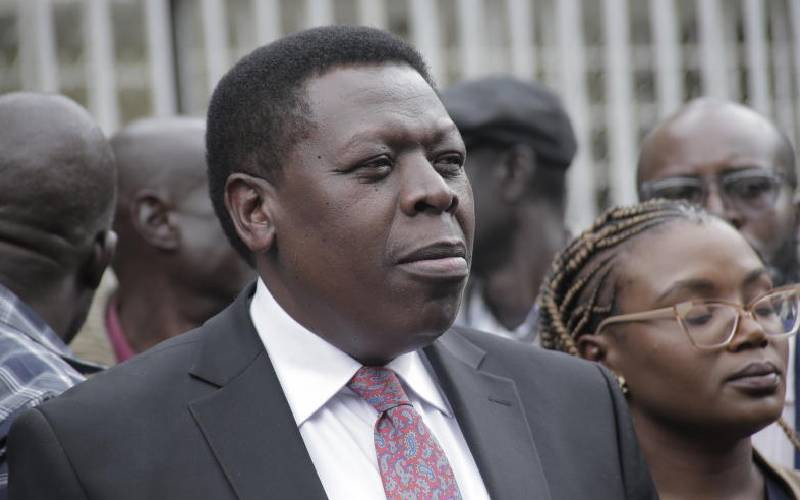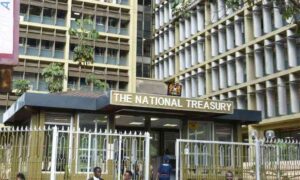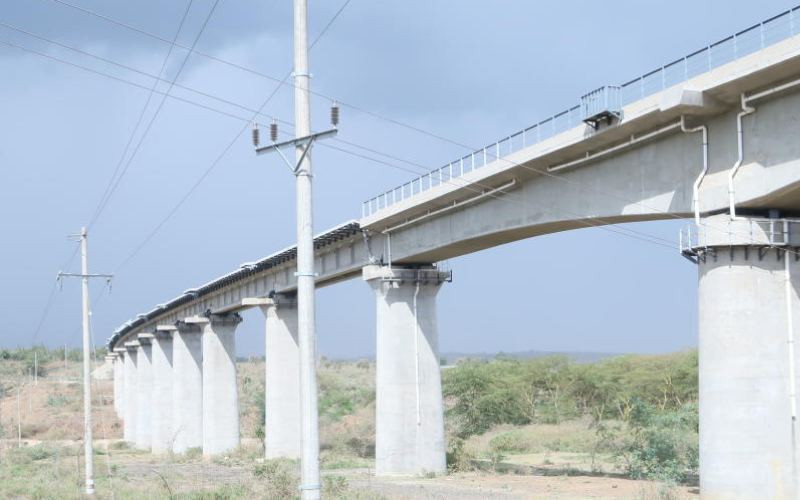The swirling controversy surrounding the proposed privatisation of Nzoia Sugar Company has ignited a political storm in Western Kenya, exposing deep divisions within the Luhya community.
The fate of the ailing miller, a crucial economic lifeline for thousands, has become a battleground for political supremacy, with accusations and counter-accusations flying between leaders.
The crux of the matter lies in the Kenya Kwanza government’s move to revitalise the struggling sugar sector, a plan that includes the possibility of leasing or selling state-owned sugar factories, including Nzoia Sugar Company, to private entities.
The plan has triggered a fierce backlash from certain political figures, who claim that the process is shrouded in secrecy. There are also concerns the sugar firm, a vital community asset, could be sold at a throw-away price.
Former Cabinet Secretary Eugene Wamalwa has emerged as a vocal critic of the government’s approach, accusing Bungoma Governor Kenneth Lusaka and National Assembly Speaker Moses Wetang’ula of being complicit in the plan.
Wamalwa’s claims at a recent radio interview have resonated with some residents, cane farmers and activists who fear the loss of livelihoods.
He is backed by Trans-Nzoia Governor George Natembeya and MPs Majimbo Kalasinga (Kabuchai) and Wanami Wamboka (Bumula).
Lusaka has, however, denied the allegations, accusing Wamalwa of engaging in political propaganda.
In a radio interview, Lusaka presented documents, including one bearing Wamalwa’s signature, which he claims sanctioned the leasing and proposed sale that he now opposes.
Wamalwa has said his opposition to the privatization is informed by the nature of entities earmarked to take up ownership for the next 30 years.
“We are aware the Kenya Kwanza government is pushing for the plan because the company will be given to friends of the top leadership. That is what we are opposing,” he said.
At a funeral in Bungoma last week, Wamalwa said two people linked to the sale of PanPaper are the same ones who want to sell Nzoia Sugar.
“DAP-K will not allow Wetang’ula and his friends to sell Nzoia Sugar as agreed in a meeting they held with would-be investors,” he said.
Wetang’ula has denied any ulterior motives in the privatisation issue. Speaking at the burial of Prof. George Fungo Chenge in Kabuchai Constituency in January, Wetang’ula urged those opposing the privatization to reconsider their stance.
Stay informed. Subscribe to our newsletter
“I want to tell the people standing in the way of this process that the world is changing and they should support efforts to revitalize the mill for the benefit of suffering farmers,” he said.
The implications of the controversy extend far beyond the immediate fate of Nzoia Sugar Company. It could have an impact on the political careers of key figures in Bungoma County and the broader Western Kenya region.
Kalasinga has drawn comparison between the way successive administrations have handled other State corporates that are a lifeline to different regions in the country.
“KCC failed several times but the powers never even discussed the idea of giving it to private individuals. They pumped in money, renamed it New KCC. I have not seen MPs from Rift Valley call a meeting to discuss privatization of KCC. Why should anyone want to privatize our own Nzoia,” he posed.
Nzoia Sugar Company, a behemoth of industry nestled in the heart of Western Kenya, is as far more than just a sugar producer.
Bukusu bedrock
Established in 1975 and commenced full operations in 1978, the Bukusu community has for years relied on the sugar firm as their main economic lifeline, a social anchor, and a symbol of regional identity. Its web of influence stretches across generations, shaping livelihoods, fostering community bonds, and dictating the very rhythm of life in the region.
However, the Kenya Kwanza government’s recent proposal to privatize this state-owned enterprise has ignited a firestorm of controversy, making it a hot political potato.
Economically, Nzoia Sugar Company has been the bedrock of the Bukusu community’s prosperity. It provides direct employment to thousands, from factory workers and agricultural laborers to administrative staff and management.
This direct employment, however, is merely the tip of the iceberg. The company’s operations ripple outwards, creating a vast network of indirect economic activity.
Small-scale farmers rely on Nzoia to purchase their farm products, providing a stable and predictable income. This income, in turn, supports small businesses and underpins the local economy.
The sugarcane farming cycle itself is a significant economic driver. From land preparation and planting to harvesting and transportation, each stage involves a multitude of local service providers, including tractor operators, transporters, and agricultural input suppliers.
The company’s presence has fostered a specialized agricultural ecosystem, with farmers acquiring expertise in sugarcane cultivation and related agricultural practices.
Moreover, Nzoia Sugar Company has historically played a crucial role in providing essential social services, including healthcare, education, and infrastructure development.
The company has invested in community projects like schools, health facilities and roads.
Generations of families have worked within its confines, fostering a sense of shared identity and belonging. The company’s social events, sports teams, and community outreach programs have served as vital platforms for social interaction and cohesion. This informs the state of uncertainty whenever the subject of leasing or selling the sugar firm is introduced.
Some cane farmers contracted to the sugar company filed a case in court to try and block the intended lease but were unsuccessful after the government won against them.
Local politicians are alive to residents’ concerns and are treading carefully as they know that poor handling of the matter can affect their careers. Many have opted to remain aloof on the matter.
In this group falls three legislators, in whose constituencies almost 65 per cent of cane farmers are drawn. The MPs have played safe over the Nzoia lease or sale matter instead leaving Wetang’ula and Lusaka to give the government’s position on the sale.
Speaking on Saturday at a funeral service, Lusaka accused some politicians of using the struggles of the sugar factory to gain political mileage while those most affected — farmers and employees — suffer.
“It is unfortunate that year in and year out, politicians use the misfortunes of Nzoia Sugar to gain cheap publicity. Meanwhile, our farmers remain unpaid and workers demoralized,” Lusaka said.
He took a swipe at Wamalwa and other leaders who have voiced opposition to the proposed leasing, saying they were part of a task force that initially recommended the same approach.
“Let us fix Nzoia Sugar. Our farmers are frustrated and workers are demoralized. We cannot afford to continue politicking while livelihoods are at stake,” he stated.
Kanduyi MP John Makali, in whose constituency Nzoia falls, has changed his position on privatization. Yesterday he told The Standard that after the government held several sittings with leaders explaining the matter, he now supports it.
“I have been made to fully appreciate the plan. In-fact I have been meeting farmers in different forums in my constituency to explain the issue. The farmers are now getting to understand the details about the plan and that it is for their good.”
Graft and mismanagement
Some residents told The Standard that they aren’t opposed to the sale or leasing of the sugar firm but lack clear information about the plan had fuelled suspicions.
“We were ready to support the government in its efforts to improve Nzoia Sugar Company through leasing or selling it if it will make our lives better. However, we’ve been left out of these discussions touching on our very livelihoods as politicians carry the show,” says Joseph Wekesa, a large-scale cane farmer in Miendo village in Bungoma.
The Kenya Kwanza government has said that privatization is necessary to revitalize the company, improve its efficiency, and attract investment. It attributes the company’s financial distress to mismanagement and corruption, and that private sector involvement is essential to ensure its long-term viability.
Speaking last year at Kibabii University, Agriculture Principal Secretary Paul Rono said privitising the firm is the only way of revamping it.
“We want to bring these mills back on track for the benefit of the locals and that can only be achieved by allowing a private investor to take over,” Rono said.
President William Ruto has sought to allay the farmer’s fears, stating that Nzoia Sugar Company is not being sold, but rather being placed under new management.
As farmers and residents await clarity from the government on the future of Nzoia Sugar, the political stakes continue to rise. The handling of the matter might make or break some political careers in the region.

























